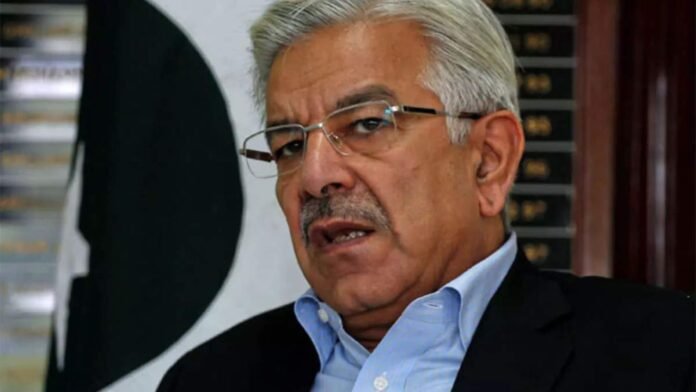Defense Minister Khawaja Asif criticized judges for making political remarks, arguing that they should not mix their judicial duties with such comments. He pointed out that the judiciary has previously made politically influenced decisions, citing examples like the Justice Munir decision and the Bhutto case.
Concerns About Constitutional Stability
He voiced his apprehensions regarding possible constitutional instability following recent court judgments, arguing stability is everybody’s responsibility, including politicians, judiciary, media, and bureaucracy.
Attack on the Pakistani Embassy in Germany
While commenting on the attack at the Pakistan embassy in Germany, Khawaja Asif reminded me that Pakistan is hosting four million Afghan refugees at present. He recalled that Pakistan fought a war for Afghans against Russia and is now fighting against terrorism. He expressed disappointment over the ingratitude shown by Afghans, whom he implied have backstabbed their long-term supporter – Pakistan.
Personal Relationship with Shafqat Mahmood
He spoke briefly about his relationship with Shafqat Mahmood, which spans over half a century since they met at Government College Lahore hostel in 1964, where they shared good and bad times during those years of struggle when sometimes only Allah can bless one with true loyalty & courage.
Shafqat Mahmood’s Press Conference
Referring to the PTI cabinet led by its founder invoking Article 6 against him, he told listeners about a press conference addressed by Shafqat Mahmood, during which the latter cited foreign residency & salary as grounds for leveling allegations against him.
Defense Minister Khawaja Asif’s comments point to a deep-seated concern over the politico-legal nexus in Pakistan. His demand for the application of Article 209 to wrong decision-making judges underscores the need for judicial answerability. Additionally, his observations on the embassy attacks plus Afghan refugees bring out the complex nature of the relationship between Afghanistan and Pakistan, characterized by frequent strains as well as his reflection upon his long companionship with Shafqat Mahmood adds a personal touch to political discourse, thus revealing intricacies inherent within such associations.


